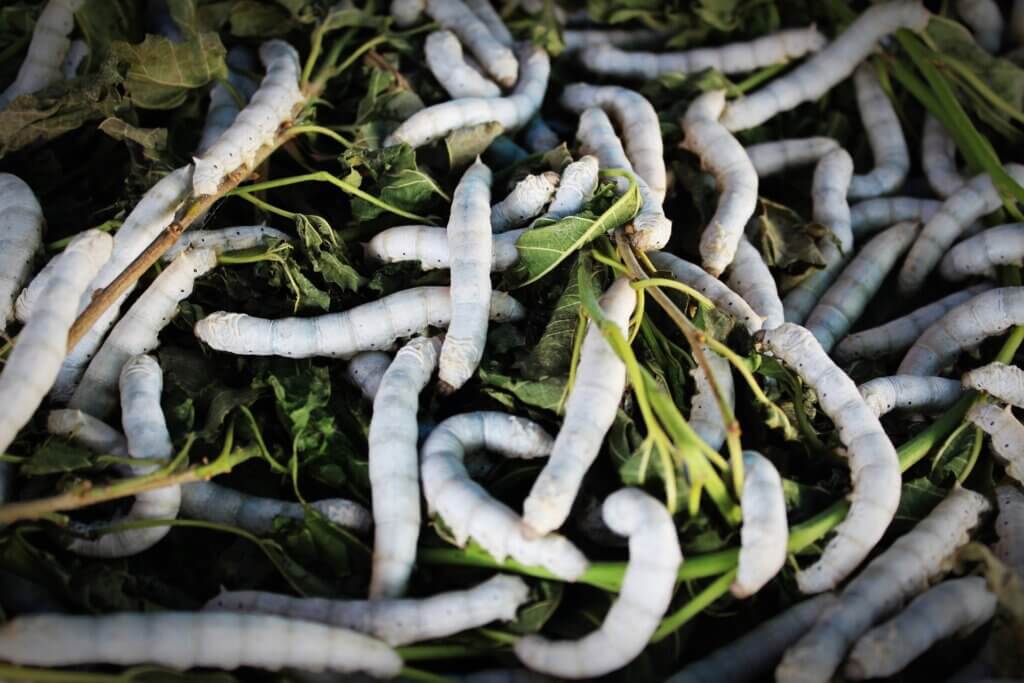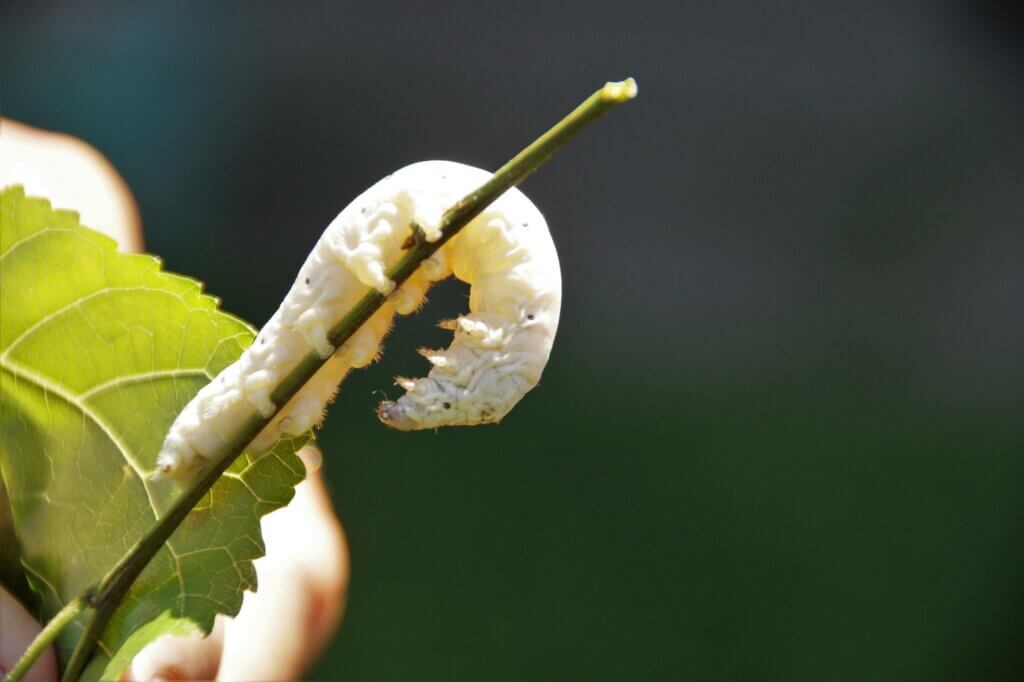Warning: You Could Be Wearing Insects
Did you ever go to a butterfly garden as a kid and spend hours watching all the butterflies fluttering among the flowers? Remember learning about how certain caterpillars spin chrysalises around themselves and later emerge as butterflies? Similar to butterflies, silkworms spin cocoons and become moths, and they deserve respect and consideration, just as all animals do.
Growing is what silkworms do best—they can grow to about 10,000 times their original size and shed their skin four times during a process called “molting.” And their cocoons are made from a single thread of silk that ranges from 1,000 to 3,000 feet long—that’s the length of three to 10 football fields!

The silk industry boils or gasses living silkworms and steals their cocoons.
1 pound of silk = 3,000 dead silkworms
You could be wearing the product of a massacre without even realizing it.
Silk, which is made from the cocoons of silkworms, can be found in everyday clothing and items such as bed sheets, pillows, scarves, dresses, and even hair-care products.
Yes, that’s right, there could even be dead worms’ cocoons in your hair, since some shampoos are made with silk. So next time your hair feels dull, liven it up with animal-friendly products.
Silkworms were meant to grow into moths and flutter around freely, but many will never get the chance to do so, because to the silk industry and its supporters, their cocoons are worth more than their lives. But you can help end this cruelty so that silkworms can grow into moths as nature intended.

What Can You Do to Help?
It’s simple! Before purchasing bed sheets, pillows, that prom dress you saw in a store window last week, new hair-care products, or a tie for your dad, be sure to check the item’s tag to see if it’s made with silk—look for alternatives such as satin, nylon, polyester, or rayon instead. You can avoid wearing dead worms’ cocoons and save thousands of sentient beings just by checking labels and not buying silk.
Text peta2 to 30933 for ways to help animals, tips on compassionate living, and more!

Terms for automated texts/calls from peta2: http://peta.vg/txt. Text STOP to end, HELP for more info. Msg/data rates may apply. U.S. only.




